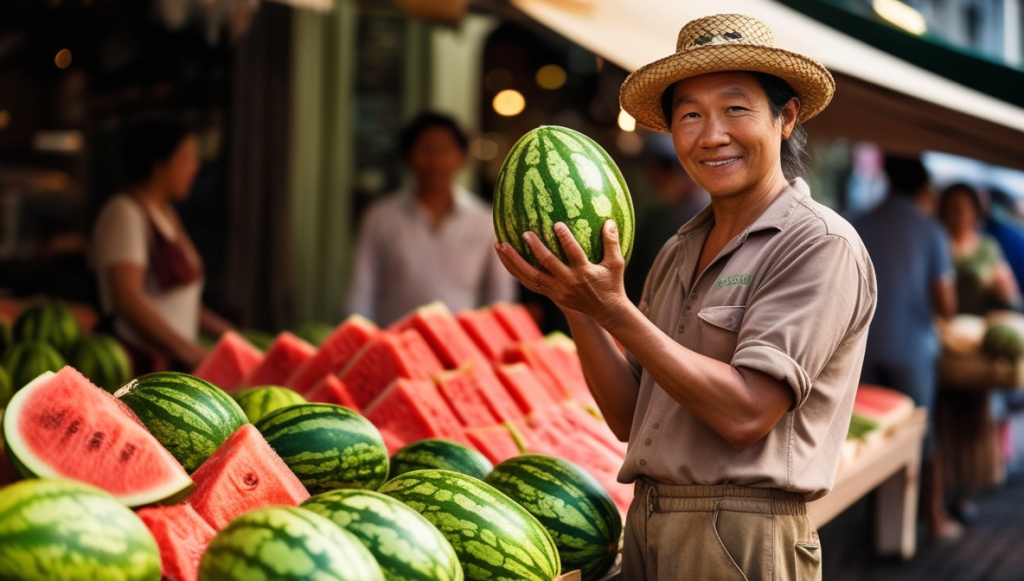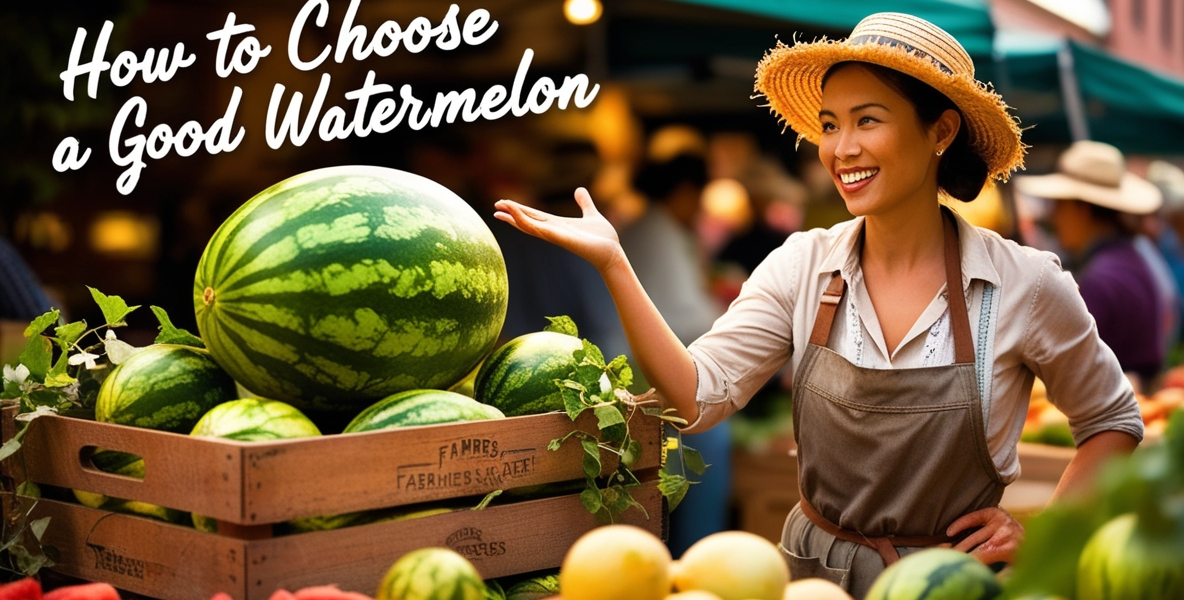Choosing the perfect watermelon can feel like a bit of a mystery, but with a few simple tips, you can pick a juicy, sweet one every time! The ideal watermelon is one that’s firm, heavy for its size, and has a vibrant green skin. Look for telltale signs like a creamy yellow “field spot” (the area where it sat on the ground) and a hollow sound when you give it a gentle tap. These hints help ensure your watermelon is bursting with flavor and ready to refresh! Whether you’re slicing it for snacks, salads, or a summer party, finding the right melon makes all the difference. Here’s how to spot a winner in the bunch!
To choose a good watermelon, consider the following tips:
Tips for Choosing a Good Watermelon
- Examine the Shape: Look for a symmetrical watermelon. It should be oval or round without any irregular bumps or odd shapes, which can indicate uneven ripening.
- Check the Weight: Pick up the watermelon; it should feel heavy for its size. A heavier melon typically has more water content, indicating juiciness.
- Inspect the Skin Color: The skin should be dark and dull rather than shiny or pale. A shiny appearance may suggest that it is not ripe.
- Look for the Field Spot: This is the area where the watermelon rested on the ground. A large, creamy yellow spot indicates that it ripened on the vine, which usually means better flavor.
- Tap on It: Give the watermelon a gentle knock. A ripe watermelon will produce a deep sound, while an under-ripe or overripe melon may sound hollow.
- Check for Sugar Spots: Dark, web-like patterns (sugar spots) indicate sweetness and good pollination. Larger spots are preferable.
- Examine the Stem: If the stem is dried and brown, it suggests that the watermelon is ripe. A green stem may indicate that it was picked too early.

What are the best ways to store a watermelon to keep it fresh?
- Whole Watermelon: Store a whole watermelon at room temperature (50-59°F is ideal) for up to 7-10 days. If you receive it refrigerated, keep it in the fridge and avoid breaking the cold chain1.
- Cut Watermelon: Once cut, store the watermelon in an airtight container or wrap it tightly with plastic wrap to prevent it from absorbing odors from other foods in the refrigerator23. It’s important to drain any excess juice daily to maintain freshness and prevent mushiness4.
How can I tell if a watermelon is overripe?
An overripe watermelon may exhibit the following signs:
- Soft Spots: Check for soft or mushy spots on the rind.
- Unpleasant Odor: An off smell can indicate overripeness or spoilage.
- Excessive Softness: If the flesh feels overly soft or mushy when pressed, it may be overripe.
- Color Change: A dull appearance instead of a vibrant color can also be a sign that it’s past its prime.
Are there any specific varieties of watermelon that are sweeter?
Yes, certain varieties of watermelon are known for their sweetness:
- Sugar Baby: A small, round variety that is exceptionally sweet.
- Moon and Stars: Known for its unique appearance and sweet flavor.
- Seedless Varieties: Generally sweeter than seeded watermelons due to selective breeding.
- Crimson Sweet: A popular variety known for its juicy and sweet flesh.
How does the growing condition affect the sweetness of a watermelon?
The sweetness of a watermelon can be influenced by several growing conditions:
- Sunlight: Adequate sunlight during the growing season helps develop sugars in the fruit.
- Soil Quality: Nutrient-rich soil contributes to healthier plants and sweeter fruit.
- Watering Practices: Consistent watering without overwatering can enhance sweetness; stress from drought conditions can lead to higher sugar concentration.
- Ripening Time: Watermelons that are allowed to fully ripen on the vine tend to be sweeter than those harvested early.
Can the sound of a watermelon when tapped indicate its ripeness?
Yes, tapping a watermelon can help indicate its ripeness:
- Deep Sound: A ripe watermelon will produce a deep, hollow sound when tapped. This indicates that it is full of water and properly ripened.
- High-Pitched Sound: If the sound is high-pitched or dull, it may suggest that the watermelon is under-ripe or overripe.
These insights will help you choose, store, and enjoy watermelons more effectively!
By following these tips, you’ll have a better chance of selecting a sweet and juicy watermelon for your summer recipes!
